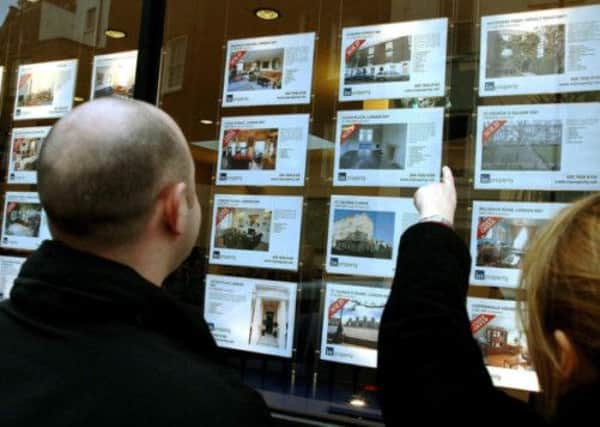Stamp duty replacement approved by MSPs


• MPSs vote to replace stamp duty for house sales in Scotland
• John Swinney hails first tax Bill in Scotland for over 300 years
Advertisement
Hide AdAdvertisement
Hide Ad• Stamp duty system causes “market distoritions” and false recording of house prices, says Finance Secretary
But businesses are already voicing concern about uncertainty over the rates at which the new Land and Building Transactions Tax (LBTT) will be set, after it was unanimously backed at Holyrood.
Finance secretary John Swinney said it will improve the Scottish tax system. The new legislation aims to address inequalities created by the “slab” structure of stamp duty thresholds. He told MSPs it was the first tax bill in Scotland for more than 300 years. “Land and Building Transactions Tax represents a significant improvement on the tax that it replaces, the UK’s Stamp Duty Land Tax (SDLT),” he said.
“We will do away with the nonsense of the slab structure of SDLT in which three times as much tax is paid when a house value nudges above the £250,000 threshold. This has caused market distortions and leads to the false recording of house prices in an effort to avoid paying tax at the higher rate.
“The LBTT will solve this in Scotland at a stroke, by substituting a progressive structure where only the amount above the threshold will incur tax at the higher rate.”
Under stamp duty, a difference in selling price of just £1 can lead to thousands of pounds in additional tax for the buyer. The new charge – which will apply to all property sales from April 2015 – will include a zero rate and at least two other bands.
A key part of the new system is that only the proportion of the price above the tax thresholds will be liable for the higher rate of tax. Mr Swinney has already said he will not announce the rates and tax bands for the new system until September 2014 at the earliest, when he starts preparing his Budget for the following year.
But David Lonsdale, assistant director of CBI Scotland, said: “He [Mr Swinney] can assist by providing early clarity over the rates and thresholds to be applied under this new tax on commercial and industrial property sales, which would be a welcome move.”
Advertisement
Hide AdAdvertisement
Hide AdLabour finance spokesman Ken Macintosh backed the call for greater clarity. “I hope the Cabinet secretary will bear in mind that business in particular is clamouring for greater certainty in this area,” he said.
Liberal Democrat leader Willie Rennie noted that the LBTT was being introduced as a result of the Scotland Act, pushed through by the coalition government at Westminster. “This is historic, it’s a landmark,” he said.
Conservative finance spokesman Gavin Brown said: “While welcoming much of the bill we are disappointed the Scottish Government refused to accept my amendment forcing it to give 12 months’ notice of the rates.”
SEE ALSO